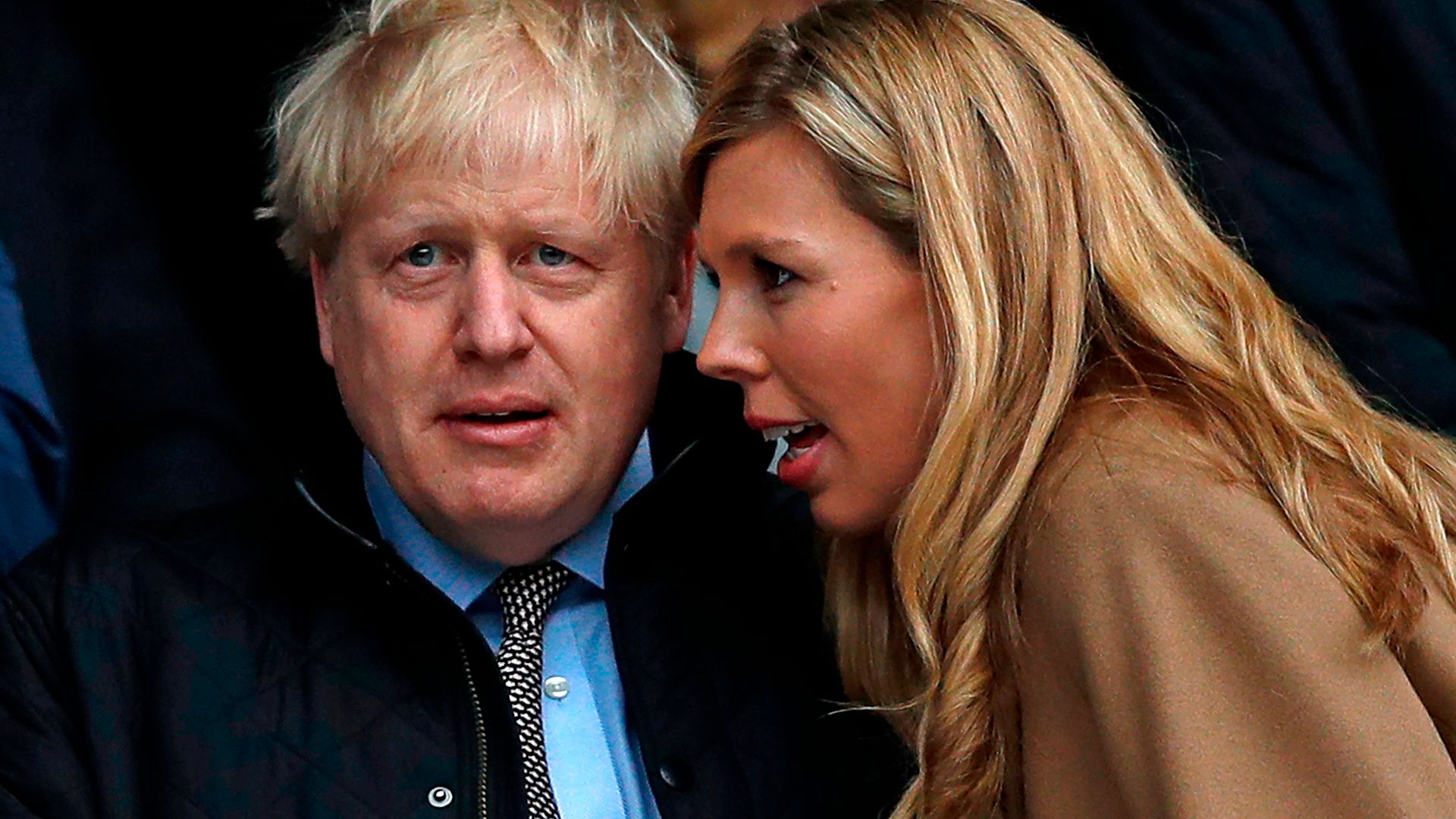When you think about the best place to learn English, you’d have thought England – and the rest of Britain, of course – might just have a distinct advantage. Frankly, if you can’t get students to come to the home of English to learn English then something has clearly gone very wrong.
Which brings us to the UK government.
In a manner that has become all too familiar to the followers of the Brexit shambles, it has managed to take a sledgehammer to the industry of teaching foreigners to learn our language, love our culture and become confirmed Anglophiles for life.
This pattern is being repeated across the education sector, in which the UK has been justifiably viewed as a world leader. That status is now under threat because of a bad decision taken in 2016 and the disastrous consequences that followed.
For decades, parents across the globe have loved to send their children to Britain on school trips. Many then came back to study the language at summer schools, and they returned as undergraduates to our colleges and universities, which built a reputation for providing a good education with qualifications recognised and respected everywhere. Our excellent research centres attracted academics from every corner of the planet. We were good at education.
And now? Well, let’s start with those school trips. Brexit, and our handling of it, has turned these into a Kafkaesque exercise for children who are probably too young to know who Kafka was.
The end of free movement with the EU has had a devastating effect. To blame is the ending of a system that let coachloads of foreign students come to the UK on a “group passport”, as the UK sought to “gain control of its borders” by putting red tape, delay, expense and confusion into a system that had worked perfectly well for years, and without reports of large groups of French pre-teens claiming refugee status while on visits to Stonehenge.
A report by the school travel industry says: “In 2019, 1.2 million EU children under 18 visited the UK as part of a youth group or school trip to attend an English language school, visit the sights, or take part in a cultural or sporting event. Collectively this market contributed over £1bn annually to the UK economy and supported over 17,200 UK jobs in every part of the UK.”
Most, the report found, travelled on their ID cards as few of them owned passports; why would you need one when you can travel across the whole Schengen area with just an ID card? Therefore, the end of freedom of movement has killed this market. The report found that the end of ID card travel caused an 83% decline in EU student group visitors to the UK in 2022, losing around £875m and 14,500 jobs.
The industry is, of course, furious. Emma English, head of the British Educational Travel Association, points out there is little or any sign of things getting better. “Kids are still travelling,” she told me, “but the volume is not there that there once was. There is no collective-group passport, there was one before Brexit, it was all done online.”
English says the Home Office now has a myopic “one student, one passport” policy. She adds that when the industry asked it how many European schoolchildren – chaperoned by their teachers, with no money and with a family waiting anxiously for them at home, remember – have ever absconded from a school trip and stayed on in the UK as illegal immigrants, “they won’t tell us”. Presumably, because the answer is zero.
The industry is finding that many of their previous customers are now taking their school trips to other European destinations where ID cards are all they need. That goes for primary and secondary school trips, but also for European teenagers coming here for language schools. For many, the best place to learn English is now Ireland.
A rather wry joke making the rounds of the industry is that in 20 years’ time, every continental who speaks English will do so with a broad Irish accent. For many in the sector it is not a very funny joke.
So pre-teens and young teenagers who once came to Britain are no longer doing so. But what about those of higher education age?
Britain’s universities were hit by Covid-19 and, like other institutions, are suffering from the knock-on effects of higher bills thanks to the cost-of-living crisis.
With fees for UK students more or less frozen since 2017 – if they had kept pace with inflation they would be nearer £12,000 a year – universities are increasingly dependent on money from foreign students. They are sometimes charged double what British students pay, and the universities can choose to increase those fees if they feel they can get away with it. Despite this, the UK is the third most popular destination globally for international students, who bring nearly £29bn to the UK economy.
Not surprisingly, my alma mater Keele University is, like many others, working hard to increase its number of foreign students. Its deputy vice-chancellor, Prof Mark Ormerod, told me: “At the moment 12% of our students are international and that is quite rapidly increasing, and we are anticipating getting to somewhere between 20 and 30%.”
But one obstacle to these ambitions is that the number of students from EU member states is falling (down 21% between 2021 and 2022 across all UK universities). This is hardly surprising, since the government pulled out of the Erasmus scheme during the Brexit negotiations, which means not only that many UK students now cannot study abroad, but also that many more EU students don’t get the chance to come to the UK.
The UK’s replacement, the Turing scheme, is a pale imitation of Erasmus and is underfunded, beset by delays and red tape and means that, increasingly, foreign study is becoming the preserve of the wealthy. University administrators recently told the Financial Times that the scheme was “plagued with problems”, with students experiencing severe delays in accessing payments.
The worst is yet to come. When foreign students flooded back to UK campuses after the end of the pandemic, the government took fright, because student numbers are recorded in the immigration figures. This led to the home secretary, Suella Braverman, threatening to limit the number of foreign students in order to bring down immigration numbers, or even to limit foreign students to so-called elite institutions. Since many universities and their local economies benefit hugely from foreign students, this was of huge concern to the sector. That threat has now been rescinded, but it has not gone.
It may have come too late for some universities. The sector is beset with rumours that an institution is about to go bust, having failed to increase student numbers as hoped. The University of East Anglia is vigorously denying that it is close to going under, but has had to introduce deep cost-cutting measures. Others are finding themselves having to cut departments, especially those that do not attract high-fee-paying foreign students.
But it is the research done by UK universities that is most at risk.
One of the very few wins from the Brexit negotiations was the decision of the UK to stay in the EU’s Horizon scheme. This £88bn scheme coordinates and funds thousands of research projects across the EU.
For the UK and its world-leading research universities, this has been a huge win. The country consistently won more funding and research projects than other countries – for years it was joint first with Germany.
It has now slipped down that league table below France, Spain, and Italy. This decline was driven first by uncertainty during the Brexit negotiations, which made researchers wary of cooperating with UK universities. And second, our standing was further damaged when Brexiteer posturing over the Northern Ireland Protocol led to us being suspended from Horizon. UK universities lost reams of money, research teams moved to the continent and the UK lost leadership of many research schemes.
The Windsor Framework, which set the terms of trade between the EU, Great Britain and Northern Ireland, broke that deadlock and allows the UK to rejoin Horizon. This was a breakthrough greeted with sighs of relief across the UK’s science sector.
Remarkably, the UK then managed to snatch defeat from the jaws of victory and started to quibble over how much it should pay into Horizon, with the PM apparently sceptical about its benefits and looking for a Plan B involving more global research cooperation.
Negotiations on rejoining Horizon are due to start soon; the UK should be rushing to sign up, but instead wants to renegotiate Britain’s current contribution to it. But that figure is part of Britain’s Trade and Cooperation Agreement with the EU, and Brussels has no interest in renegotiating it.
This is how Brexit has hit the UK’s education sector. Arrogance, red tape, exceptionalism, incompetence and delusions of grandeur have managed to wipe out many of its natural advantages. Meanwhile, teachers and lecturers are on strike. It is time our leaders went back to school.




